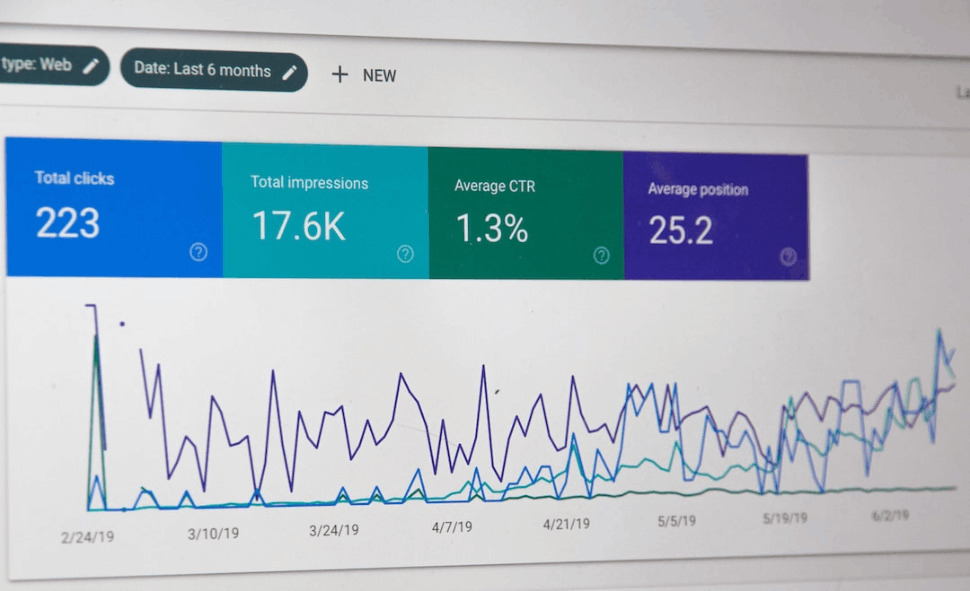The journey to gaining online visibility is endless. It requires a fusion of several SEO elements like backlinks, internal linking, and of course, organic keyword research.
Finding the right keywords to attract organic traffic is a herculean task– but it’s a core SEO element. It’s the best way to ensure your customers find your products and services online. If you can master the art of organic keyword research, your article will rank on the first page of google. Or better still, as a featured snippet.
However, optimizing your website for organic keywords demands patience and expertise.
This article will show you how to develop the latter. We’ll discuss the importance of organic keyword research and how to find them. Keep reading to unveil the details.
What Are Organic Keywords?
Organic keywords are keywords used in SEO to attract free organic traffic to a website. These keywords help visitors find your website or products without clicking on ads. It’s the opposite of pay-per-click (PPC) keywords, which requires paying to get your keyword to the right audience.
You should learn to optimize your website for organic traffic as it’s a more cost-effective option for businesses. It helps you to save costs and resources. Besides, billions of searches are carried out on Google daily. If you divert a portion of that traffic to your website, you can skyrocket your revenue.
This leaves us with one question: how can you find organic keywords? Keep reading, and we’ll show you.
How To Do Organic Keyword Research
With Google receiving over 4.5 billion daily searches, optimizing organic keywords is a great rank booster. How do you find these gems out of thousands of keywords? We have provided a few tips for researching organic keywords like an expert.

Use Google Analytics
Google Analytics is the first way to find organic keywords. It will help you identify the key phrases attracting traffic to your site.
How do you go about it? Log into the Google Analytics dashboard, click “Behavior” >”Site Content” >”landing Pages.”
Afterward, enter your URL in the search bar or click the URL slug. You’ll get a few options, select “Secondary Dimension” > “Advertising” > “Keyword” or use the search bar to locate the keyword option. The results of this search are the keywords driving traffic to your webpage.
Another alternative is to view the organic keywords through the organic search window. Simply follow this order: Acquisition > All Traffic > Channels> Organic search. Then, you’ll get access to the keywords attracting organic traffic to your landing page.
However, Google Analytics may only reveal generic keywords and specifically conceal some keywords with “not provided.”
You can unveil the “not provided” key phrases with the help of a keyword research tool like SEMrush. On the flip side, you can rely on the second method we are about to introduce below.
Google Search Console
Google Search Console reveals critical metrics like the average ranking position for each query (keywords). How can you use this tool to find organic keywords?
After logging in to your Google Search Console dashboard, navigate to the search results option. Under the “Queries” section, you will find the list of keywords your website benefits from organically. It shows the click-throughs, positions, and impressions of each query.
With those entries, you can build an on-page SEO strategy to make improvements where necessary. However, ensure you focus on keywords with high search volume and low ranking on your website.
You may optimize your page with these keywords by infusing them into your meta description, headers, or alt text. This drives massive organic traffic to your site.
Check Competitor’s Organic keyword
A trick to improving SEO is to see what your competitors are doing right. Or, in this case, check the organic keywords they are ranking for.
This gives you a broader insight into the keywords that yield better online responses. So you can integrate it into your SEO strategy. How do you find this?
Use Keyword Research Tool
By using a keyword tool, you can view the keywords your competitors are ranking for. It also helps you find variants of your primary keywords and valuable queries targeting a search intent.
Investing in a great keyword research tool enables you to determine the most relevant queries to focus on.
That’s how to find the keywords that direct people to your website without an ad! However, finding the keyword only solves half of the puzzle. The other half is learning how to use organic keywords to rank.
How To Optimize Your Website With An Organic Keyword

On-page SEO is fundamental to improving your position on SERPs. And organic keywords are the cornerstone of on-page SEO. How do you optimize your pages with these keywords to skyrocket your click-through rates and ranking?
Focus On “The” Keywords
Organic keyword research on Google Search Console reveals the phrases that attract your audience. That’s what we call revenue keywords.
Focus on optimizing these keywords and see how it turns out for you. When you discover keywords with the highest conversion rate, it’s important to leverage them and boost your conversion.
While optimizing your webpage for new keywords with high search volume is great, learn to take advantage of quick wins.
Optimizing Existing Pages
SEO is an unending action. Finding ways to optimize existing content with high-value keywords is necessary. Learn to incorporate the ranking organic keywords into your content. But avoid keyword stuffing– you need to make all your sentences as natural as possible.
Forcing keywords into your content affects readability negatively. And negative readability translates to a lower ranking.
Update Your Page Regularly
Regular update is an indicator of relevance. As a result, run a site audit often and make necessary adjustments to your webpage. Search engines fancy fresh content; hence, retrofit your content frequently.
Create Content Clusters
Having several pages related to similar keywords is keyword cannibalization. This affects your ranking and overall SEO efforts.
But you can have several connected pages targeting different search intents of a particular keyword without duplicating the pages. This is called creating content clusters. For a content cluster to work, you need to link all the variations to a main page called the pillar page.
A well-structured content clusters answer several search intents regarding a specific topic. This establishes you as an authority on the subject matter and increases your website’s ranking.
In A Nutshell
Organic keyword research could be arduous without the right insight. But you can rank organically if you use the right tools and follow the tips above. This means more sales and improved conversion for an e-commerce website.
Using Google Analytics, keyword research tools, or Google Search Console informs your SEO strategy and helps you find organic keywords.
Remember, ranking on SEO only gets half of the job done. Consistently optimizing your webpage keeps you ahead of competitors.
Explore All Keyword Research Guide Articles
White Label Keyword Research Tools Worth Considering
White-label keyword research tools are becoming increasingly popular amongst online marketers. These powerful platforms offer many benefits that can help…
A Guide to Advanced Competitor Keyword Analysis
Assessing the competition can effectively identify your website’s strengths, weaknesses, and opportunities. Knowing your competitors’ SEO strategies and tracking their…
A Guide to Effective Keyword Rank Tracking
Everybody wants to be on top of Search Engine Results Pages (SERPs). And knowing where your website and content rank…
How to Find Negative Keywords in Google Ads
The whole point of using ads is to target potential customers. You don’t want your ads showing up for unrelated…
The Google Search Console Guide for Keyword Research
Crafting an effective keyword research strategy is no small feat. It requires an in-depth understanding of your audience, a comprehensive…
How to Pick Effective Focus Keywords
A focus keyword for Search Engine Optimization (SEO) is critical to ensuring the success of any digital marketing strategy. Not…
